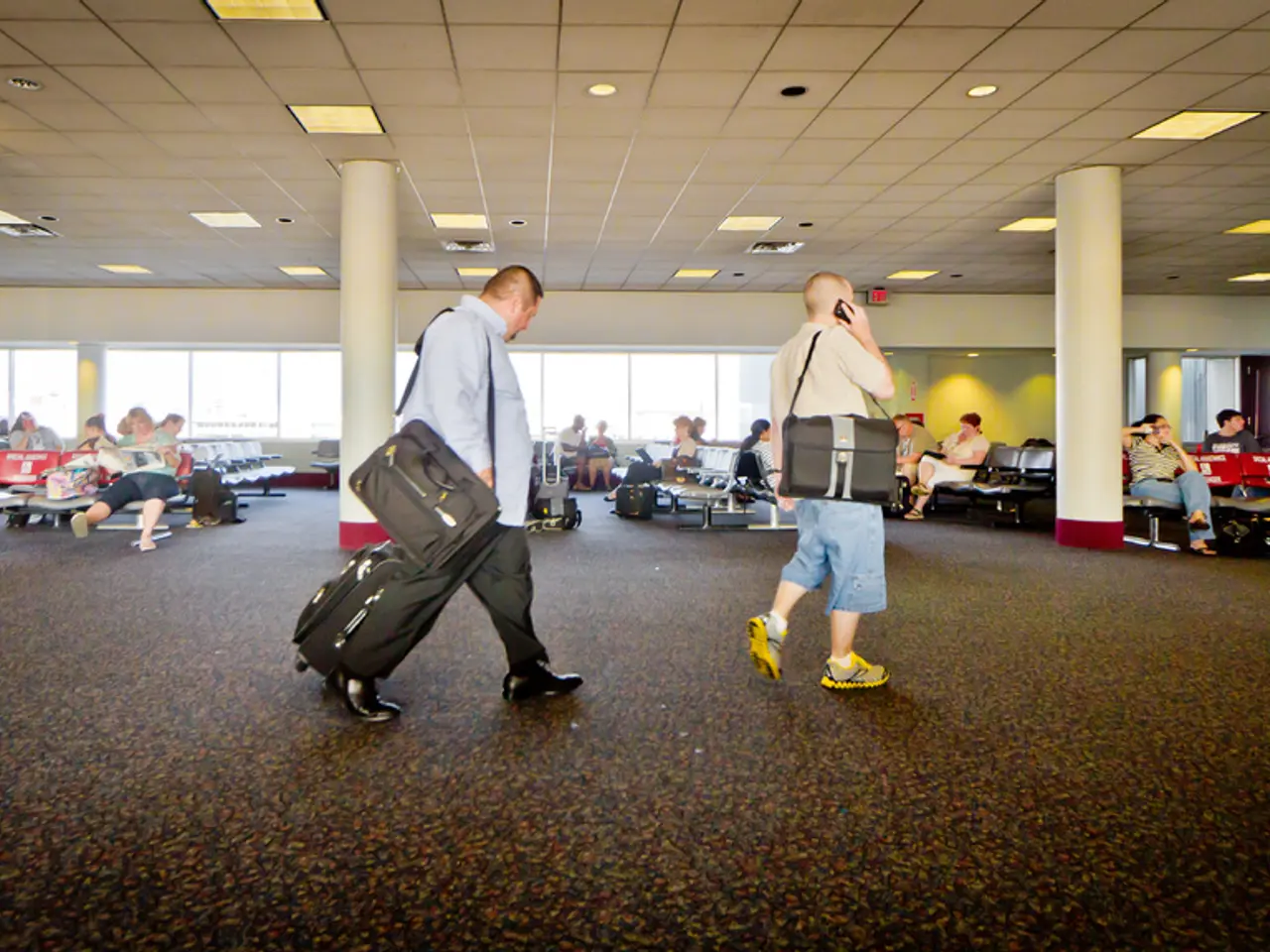Smartphone users should refrain from using specified networks, as advised by the Transportation Security Administration (TSA)
In the modern age of technology, airports have become hubs for travellers to stay connected while on the go. However, with this convenience comes potential risks to the security of smartphones and personal data. The Transportation Security Administration (TSA) and cybersecurity experts have issued warnings about the dangers of public charging points and Wi-Fi networks at airports. Here are some best practices to help you stay safe and secure while using your smartphone at airports.
**Avoid Public Charging Stations**
The TSA warns users to beware of public charging points due to the potential for cyberattacks known as 'juice jacking'. To protect against this, always use your own wall chargers or car chargers. If you must use a USB port, use a "USB condom" or data-blocking adapter to prevent data transfer while allowing power charging. Opt for wireless charging options if available, as they eliminate the risk of data transfer through USB ports.
**Secure Public WiFi Usage**
Refrain from using public WiFi networks at airports due to the risk of data interception and fake hotspots. If you must connect to public WiFi, use a secure VPN to encrypt your data. Always double-check the full network name before connecting to ensure it is legitimate and not a fake hotspot.
**Smartphone Security Precautions**
Use airplane mode while charging to disable wireless communications, reducing the risk of data theft. Keep your smartphone locked when not in use, especially in public charging areas. Ensure your operating system and security apps are up to date to protect against emerging threats like juice jacking.
**Additional Measures**
Consider using a secondary or "burner" phone for travel to minimize exposure of personal data. Backup your phone data before traveling and perform a factory reset if necessary to protect sensitive information.
By following these guidelines, you can significantly enhance your safety and data security while using smartphones at airports. The Federal Trade Commission (FTC) advises to check the WiFi network identifier carefully before joining, and to use reputable, paid VPNs from bluechip developers. The FTC states that connecting through a public WiFi network is usually safe due to widespread use of encryption. However, the cost of using free charging stations may be higher than users think due to potential cyberattacks.
Cybersecurity threats continue to evolve, and the government's advisory aims to raise public awareness and promote better personal tech hygiene. Venn's David Matalon states that these risks go beyond just mobile devices, as more employees work remotely and often connect to unsecured networks. Zimperium has issued a public WiFi warning for smartphone users, especially during travel, as attackers know how to strike with free public WiFi.
Over 5 Million Public Unsecured Global Wi-Fi networks have been found since the beginning of 2025, with 33% of users connecting to public unsecured networks. To stay safe, the TSA advises not to plug phones directly into USB ports at airports, and to use TSA-compliant power bricks or battery packs instead. The TSA also advises against using free public WiFi at airports, especially when planning to make online purchases or entering sensitive information. Plugging into an unfamiliar port may unwittingly connect users to compromised networks or devices, exposing private information.
In conclusion, by being vigilant and following these best practices, you can protect yourself from potential cyberattacks at airports. Stay safe, and enjoy your travels!
- Cybersecurity experts recommend using a reliable, paid VPN to encrypt data when connecting to public Wi-Fi networks at airports, considering the risk of data interception and fake hotspots.
- Lifestyle choices such as using a secondary or "burner" phone for travel and keeping your smartphone locked, especially in public charging areas, can help minimize exposure of personal data and increase technology safety at airports.





